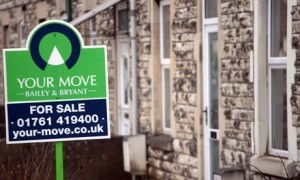Guaranteed Rent is a great way to take advantage of the strong letting market without having to handle the headaches. Contact Guaranteed Rental today on 020 8694 8098 to find out more.
Modest house price increases in late 2010 and early 2011 have been wiped out.

House prices have dropped to their lowest level for 21 months, with a 3% fall in the second quarter of 2011, according to the LSL/Services Acadametrics index.
Although the average price in England and Wales fell by just 0.1% in July, this means the average home is now worth £217,300, a level previously seen in December 2009.
Modest gains seen in late 2010 and the early months of 2011 have been wiped out, though house prices are still significantly higher than the £200,234 average reached at the low point of the last recession in April 2009. Although the index indicates that the rate of decline on an annual basis is slowing, transactions have been falling year-on-year by 5.9%. Cheap mortgage deals have failed to stimulate demand, with London being the only region seeing consistent price growth in the last four years.
David Newnes, director of LSL Property Services, which owns estate agents Your Move and Reed Rains, said: “The fact that prices have only fallen by 0.1% means the steep declines between April and June have ceased. Transactions met their expected seasonal rise of 5% in July. This indicates that the market is not falling off a cliff in the short term, but that it remains weak in the longer term.
“Of all types of property, flats have shown the weakest growth in transactions. This indicates that the first-time buyers who would normally be driving the market for smaller properties remain excluded from the market.”
Greater London is the only region in England and Wales experiencing a rise in house prices since 2007, but even this 5.6% rise over the last four years means prices in the capital have fallen by 7.5% in real terms, when set against inflation as measured by RPI over the same time period. Nationally, house prices have fallen by just over 17% in real terms.
LSL also analysed the returns buyers are likely to have made on a purchase of property over the past five years. While people who bought properties before March 2006 are likely to be enjoying equity gains, those bought between 2007 and 2011 could face negative equity.
Although Halifax and Nationwide building society both reported marginal increases in house prices for July (0.2% and 0.3% respectively), LSL warns there is little reason to expect the market to move forwards in the coming months. It says events such as the loss by the US of its triple A status and Europe’s worsening financial crisis have rocked the world economy, negatively affecting confidence and growth in the UK housing market.
However, Peter Williams, chairman of Acadametrics – the only UK house price index based on every residential property transaction in England and Wales – said: “Although the housing market is depressed, it is very clear that in some areas and for some properties there is an active market with rising prices. Market segmentation is strengthening, with some markets being underpinned by high numbers of cash buyers. Although there has been a shift from owning to renting, it is clear there is still an underlying appetite to own a house and the question in part is how to translate that hidden demand into activity.
“More innovative mortgage products will help, but a stronger outlook for the UK economy is the essential key. Little wonder Whitehall is very focused on its review of growth prospects and of ways to stimulate activity. The next three months will be critical.”
Source: http://www.guardian.co.uk/money/2011/aug/12/house-prices-fall-21-month-low